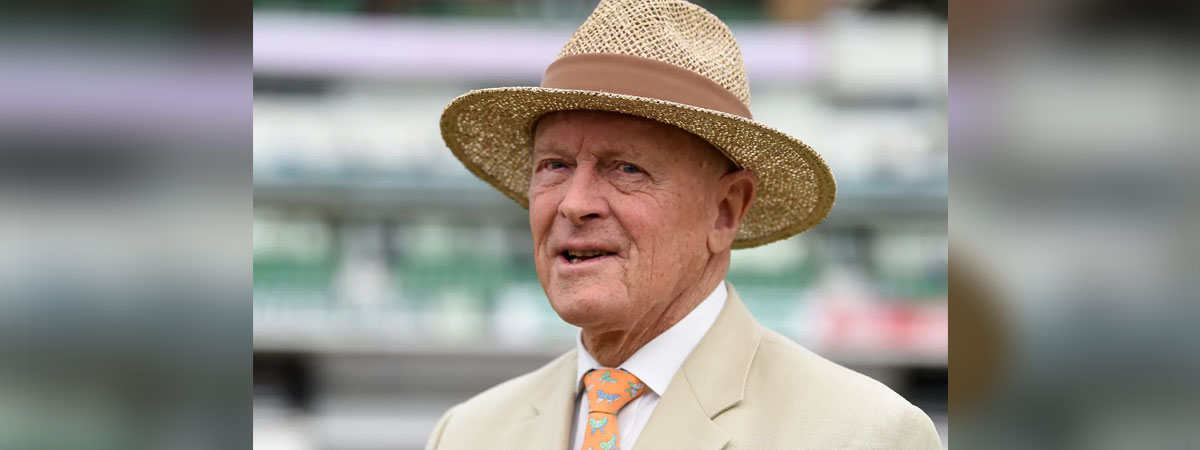The most self-obsessed batsman of his generation, Geoffery Boycott has turned into an authoritative voice on the game. At 76 and now in his third decade of work with TV, radio and print media, Boycott, through his forthright views, has attained, one of the top spots in world cricket media.
Sky Sports snapped him up for the 1989-90 tour of the Caribbean when it started live coverage of overseas Test matches. There is no more popular English commentator than Boycott in BBC’s Test Match Special team.
A watertight technique to match anyone in the history of the game and statistically at least, one of the best opening batsmen, in the post-war period, he would still not go down in the history as a match-winning batsman
A controversial figure throughout his playing career with England, Boycott’s depth of knowledge and professionalism has manifested much more in his media work than as a player.
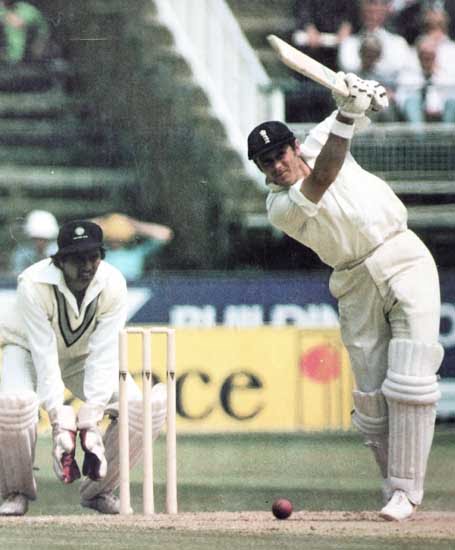
He is as popular as the modern players in the sub-continent, which as a player he avoided for the fear of serious illness on more than one occasion, i.e. Pakistan (1968-69), India & Pakistan (1972-73) and India (1976-77).
On one hand his team members both at Yorkshire and England, admired his batting skills but were also frustrated for his slow batting added unwanted pressure on the rest of the team, to move on more swiftly.
Not universally acknowledged as a great team man, for his approach suggested he was far too selfish and introvert to have enough positive impact. Boycott’s entire focus it seemed was to occupy the crease for as long as possible, often at the cost of his side taking control of the match.
Boycott’s true value to the side was appreciate more on tricky wickets, for his preparation and technical acumen to co-op in adverse conditions, was second to none. A superb technician, it made him an extremely difficult batsman to dislodge, particularly when he had set his mind to saving a Test match for England.
A watertight technique to match anyone in the history of the game and statistically at least, one of the best opening batsmen, in the post-war period, he would still not go down in the history as a match-winning batsman.
A beautiful model to follow in terms of professional dedication to the art of batting but perhaps not quite classy enough to be bracketed alongside Jack Hobbs, Walter Hammond or Len Hutton, three of the finest English batting masters.
By the time Boycott arrived Down Under for the 1970-71 Ashes battle, he was at the top of his game and put a high price for his wicket. A sequence of 70, 50, 77, 142*, 12, 76*, 58 and 119* in Australia was instantly followed by two hundreds against Pakistan: 121not out (Lord’s) and 112 (Leeds)
His legacy in the game has been enhanced as a top-rated pundit. Boycott’s well-balanced take, more so on batting skills and mental strength, carry weight for he himself was ever so sound and self-critical.
His liberal use of the phrase, ‘corridor of uncertainty’ was borne out of his personal experience against the best new-ball bowlers of the world in a career that stretched to quarter of a century.
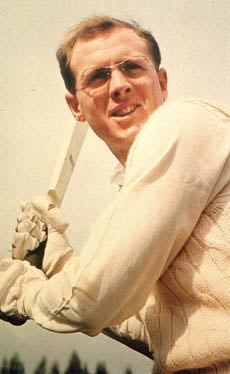
Boycott was born in Fitzwilliam, a mining village of Yorkshire on 21st October, 1940 at precisely 11am – ironically the kick off time of a Test match in England. On the strength of his success at school and three clubs, Ackworth, Barnsley and Leeds, at 21, he joined Yorkshire that boasted of three strong characters -Fred Trueman, Brian Close and Ray Illingworth.
On his first-class debut, against the 1962 touring Pakistanis, at Bradford, Boycott was twice dismissed for 4, each time by Antao D’Souza.
In only his fourth Test at The Oval, Boycott reached his maiden hundred (113) – a typically watchful, cautious effort against Australia in 1964, which saved his side from a possible defeat. England selectors could not ask for a technically better batsman at the top of the order.
The 23-year batsman walked in with England team that featured the likes of Ted Dexter, Colin Cowdrey and Ken Barrington. He emerged as an opening batsman who adapted well to overseas conditions with success in South Africa (1964-65), Australia (1965-66) and West Indies (1967-68).
Short sightedness did not hamper Boycott’s progress and after initially wearing glasses, he wore contact lenses for the rest of his career.
Despite the controversy he is ranked deservedly alongside Herbert Sutcliffe and Len Hutton. Even 31 years after his retirement from the game, Boycott’s final tally of 48,426 runs @ 56.83 placed him 8th in all-time list of first-class cricket and his 151 hundreds is exceeded four other batsmen, remains intact
Boycott was often criticised for his slow batting. Even his 146 not out in 60-over innings in the 1965 Gillette Cup final, when he showed he could change gears when required, could not alter his reputation. His double hundred – a career-best unbeaten 246 against the 1967 against Indians at Leeds – was deemed too slow and he was dropped from the next Test match on what was termed as ‘disciplinary measure’.
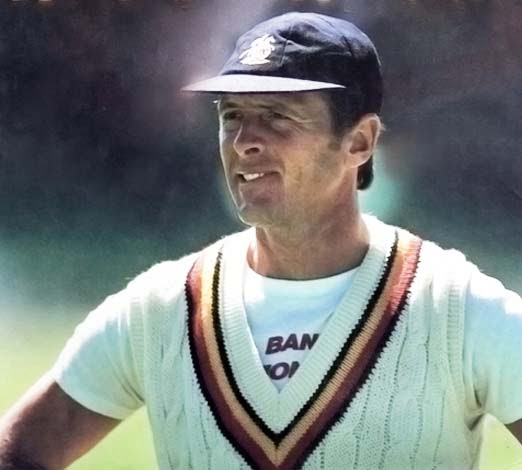
An innings of 105 against Australia at Sydney in 1979-80, was Boycott’s best effort in the limited-overs international cricket. Boycott’s obsession for batting for long periods and accumulating runs at a ‘certain pace’ held him back in the world-rating.
The staging of 1975 Prudential World Cup changed the demands of a front-line batsman. Boycott, no doubt a big name but not quite in the same league as Gary Sobers, Clive Lloyd, Barry and Viv Richards, Gordon Greenidge, Majid Khan, Asif Iqbal, Ian and Greg Chappell, in terms of star attraction and crowd pulling.
By the time Boycott arrived Down Under for the 1970-71 Ashes battle, he was at the top of his game and put a high price for his wicket. A sequence of 70, 50, 77, 142*, 12, 76*, 58 and 119* in Australia was instantly followed by two hundreds against Pakistan: 121not out (Lord’s) and 112 (Leeds).
No wonder Pakistan paceman, Asif Masood, took great pleasure in dismissing him for 13 in the 2nd innings at Leeds and along with his team mates, teased him, ‘Who is the Greatest’. In the 1971 season he scored 2503 runs @100.12 and eight years later in 1979 hit 1538 runs @ 102.53 – making him the only player to twice average over hundred.
The root cause for Boycott’s self-imposed exile was the fact that he was overlooked for the captaincy which he considered his right. Once his fellow Yorkshireman Ray Illingworth was relieved after the home Test series defeat against the 1973 West Indies side, his successor Mike Denness was an unexpected move that caused Boycott lot of stress.
Although he agreed to tour the Caribbean in 1973-74 under Denness and had a considerable success with the bat but deep down he was hurt for he wanted the job himself.
His critics both in media and ex-players were quick to jump to the conclusion that Boycott only cared for himself and has once again put his own personal batting milestones ahead of England. His only opportunity to lead England came when as a vice-captain he stepped in to cover injured Mike Brearley on 1977-78 tour of Pakistan & New Zealand.
He had to endure one of the lowest point of his international career when England dismissed for 64 at Wellington, handed the Kiwis their first ever Test victory against England.
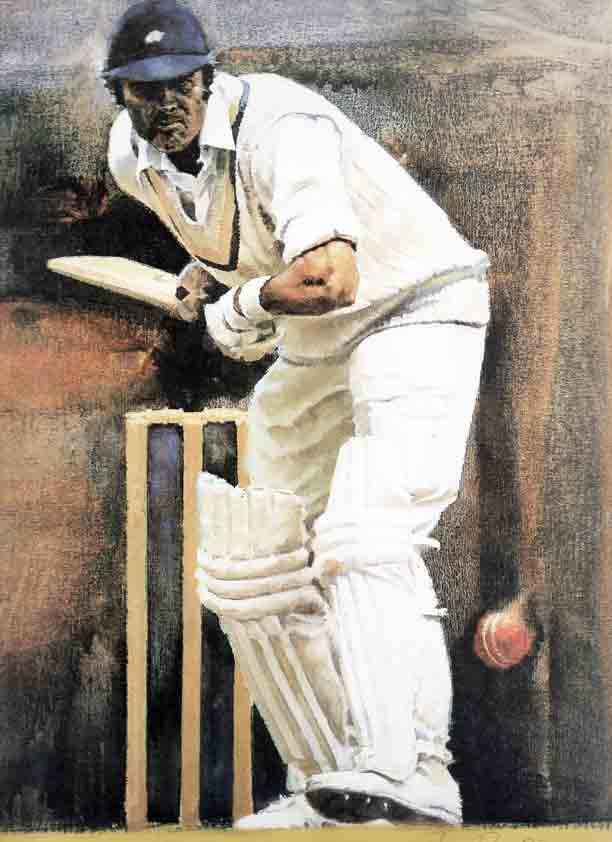
Although he fancied himself, but Boycott like Glenn Turner or Zaheer Abbas, were too tunnel vision, to become great leaders.
At Manchester in 1974, Boycott’s two cheap dismissals for 10 and 6 against the gentle pace of India’s Abid Ali and Eknath Solkar illustrated his somewhat disturbed state of mind. The situation reached a point where Boycott decided to make himself unavailable for the 1974-75 Ashes series Down Under, thus avoiding the onslaught of Lillee-Thomson.
He was badly missed for two of Boycott’s past opening partners – John Edrich and Dennis Amiss – too had failed to co-op in those conditions. Boycott’s continued absence in the 1975 Ashes series at home and the famous 1976 summer against West Indies – was unfortunate for a batsman of his unshakable technique and temperament had relished contest in the past.
On his return to international cricket, after a self-imposed exile that saw him miss 30 Test matches, Boycott was more than determined to make up for the lost years. Even during the three-year period, he was rarely out of headlines, for one reason or another, with Yorkshire. Kicking off with 107 against Australia at Trent Bridge whilst sharing 215-run stand for 6th wicket with Alan Knott (135).
The running out of local boy Derek Randall courtesy of Boycott’s somewhat poor judgement was forgiven when the pair walked off with 7-wicket win on the final day. The crowd had forgiven Boycott, who had added an unbeaten 80 to his first-innings hundred. A fairytale comeback!
Now with all eyes on him Boycott produced a champagne moment of his illustrious career. In front of his home crowd at Headingley, Leeds, Boycott became the first batsman to bring up his 100th first-class hundred in a Test match. A perfectly-timed on-drive through mid-on off Greg Chappell to the boundary sparked a crowd invasion for Yorkshire’s celebrated son.
Having batted for 10 hours and 29 minutes and faced 471 balls, he was last out for 191 in England’s total of 436. He could not have timed it better as his great achievement was watched by Herbert Sutcliffe and Len Hutton, two of the all-time great Yorkshire batsmen.
When the Packer boys returned to the international cricket – Australia, West Indies and Pakistan – were the three sides to test a batsman’s mettle. Now in his 40th year he still had guts to stand up to the pace. Boycott was not known to throw his wicket away.
An unbeaten 99 (215) against Lillee and Thomson at Perth in 1979-80, made him only the third Englishman to carry his bat in a Test match. Boycott’s critics always pointed out at the Yorkshireman’s record against top-class pace attack as nothing special.
Boycott replied to his critics in the most brilliant fashion by standing up to one of the most feared pace attack in the modern times that consisted of – Andy Roberts, Michael Holding, Colin Croft, Joel Garner and Malcolm Marshall – All the more for the fast bowling was very hostile and Boycott was targeted as a main obstacle in their path. By now he had Essex’s Graham Gooch as his opening partner and the pair complemented each other.
Showing all the attributes of a master technician he scored runs, although at his usual slow manner, that kept England in the game. His reflexes were not too bad for someone in his 40th year as he scored 663 runs @ 41.43 in 9 Test matches in two back-to-back series against West Indies.
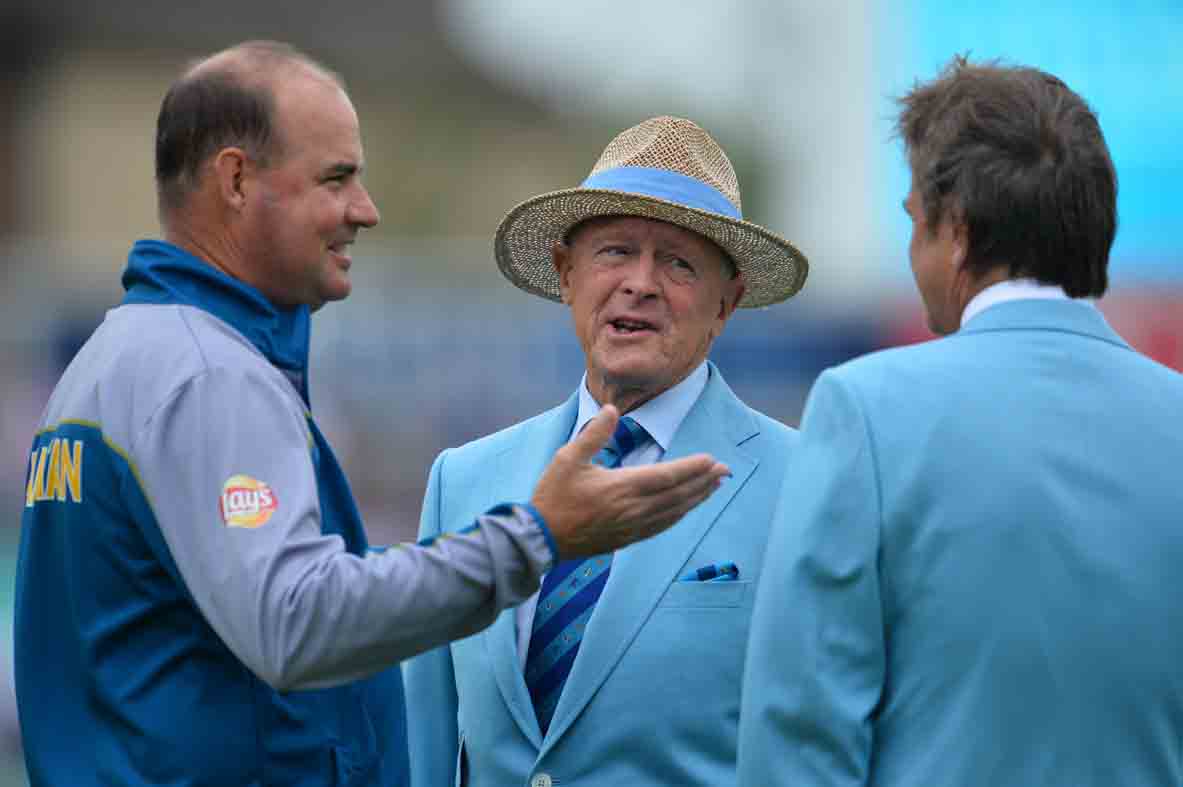
It was the hardest time of his lengthy international career and he came up with great credit. It was a sheer bloody-mindedness that helped Boycott to overcome a terrible Test at Bridgetown – when cleaned up in a dramatic over from Holding for a famous duck and then caught off the same bowler for 1 in the second innings– to reach a match-saving hundred – an unbeaten 104 at Antigua, in the very next Test.
Boycott was only the 2nd player, after Colin Cowdrey, to appear in 100 Test matches, when he walked out against Australia at Lord’s in 1981. His attempt to reach three figures at the home of cricket on the momentous occasion was halted when he was caught at the wicket off Dennis Lillee for 60. At the end of the series, in what proved his last Test match in England, Boycott scored 137 @ The Oval.
Boycott ended his international career in the 1981-82 winter in India. A series that was played in slow motion in front of full house, Boycott’s painfully slow batting, did not endear him to anyone. On the opening day of the 3rd Test at Delhi, he surpassed Garfield Sobers’ Test aggregate of 8032 runs – and then went on to score 105.
With two Test matches of the series still to be played, Boycott played his last game for England with three world-record to his name – most Tests (108), most Test innings (193) and most Test runs (8114). It was during the Indian tour that Boycott and a number of English players accepted the offer to join a rebel tour of South Africa. Boycott now 41 had no appetite for long overseas tours and once having broken Sobers’ record was happy to fade away from the international scene.
Boycott led Yorkshire for eight seasons (1971-78) in the period where a number of senior players of his era had either retired or switched to other counties and the fact that his team continued to follow a tradition of only picking up home-grown players.
The first overseas player to represent Yorkshire was India’s Sachin Tendulkar, when Yorkshire, somewhat reluctantly broke away with the proud tradition, dating back to 1863. He was not a popular figure with the Yorkshire committee and anti-Boycott group added more pressure to his job.
Even with his full attention to Yorkshire in the time period of his he was not playing for England, by his own choice, he failed to inspire the team. When dismissed as a captain in 1978 it was a massive blow to his pride.
Five years later in 1983, he was sacked by the Yorkshire CCC committee only for him to be reinstated the following year before finally sent packing ‘in the best interest of Yorkshire cricket’ in 1986.
That was a final twist in the Boycott saga. An unhappy end for one of the most prolific batsmen of his times, who as Yorkshire’s rock solid opening batsman for 25 summers was no longer needed.
Despite the controversy he is ranked deservedly alongside Herbert Sutcliffe and Len Hutton. Even 31 years after his retirement from the game, Boycott’s final tally of 48,426 runs @ 56.83 placed him 8th in all-time list of first-class cricket and his 151 hundreds is exceeded four other batsmen, remains intact.
